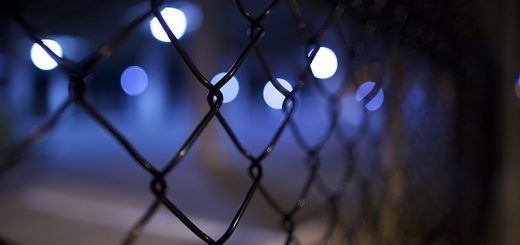Inside and Out: Charkaoui makes his case on the courthouse steps
Adil Charkaoui has spent more time working his way through the Canadian court system than most Canadian lawyers. This past January 31, Canada’s most famous security certificate detainee was back at it in the Supreme Court of Canada (“SCC”), this time trying to establish that his right to procedural fairness had been violated [link].
At issue was the Canadian Security Intelligence Service’s admitted destruction of the notes and recordings of an interview with Mr. Charkaoui – materials that had served as the basis of his detention under a security certificate – before the evidence could be examined in court. Mr. Charkaoui had argued that CSIS ought to have disclosed the destruction policy when proceedings started against him, interpreted s. 12 of the Canadian Security Intelligence Service Act more broadly than simply requiring the retention of information supporting arguments that individuals posed a danger, met their duty to disclose evidence promptly, and ought not to have issued a security certificate based on their investigation. Mr. Charkaoui also argued that the Federal Court of Appeal had underestimated the impact of the above breaches on his rights, and that it should not have upheld a Federal Court judge’s approval of the use of supporting evidence obtained subsequent to the original decision to hold Mr. Charkaoui on a security certificate.
Meanwhile, as Mr. Charkaoui fought in the courts, outside the courthouse a variety of people and organizations gathered to protest on his behalf. One of the people who helped to organize that demonstration was Mary Foster from the aptly named Justice for Adil action group that is spearheading Mr. Charkaoui’s campaign. TheCourt.ca asked her a couple of questions via email.
TheCourt.ca: In protesting outside the court, what was the message for the public?
Mary Foster: We wanted to bounce off the public attention generated by the court hearing to draw attention to CSIS profiling and harassment of immigrant and other targetted groups.
The Court.ca: Traditionalists would argue that the Supreme Court does not play an explicitly political role. What role do you see the court playing and should they be playing a different one?
MF: Whether we have a “political” court, or a court which seeks to present its decisions as mere application of legal principles, the court’s decisions are filtered through a narrow debate conducted among a legal elite which is influenced by the wider political climate. I think a more interesting question would be whether and how, at a popular level, we can hope to push the Supreme Court to make more progressive decisions, more reflective of the reality of those who are directly affected by their decisions, in a time of political conservatism such as the one we are currently living through.
TheCourt.ca: How does the Supreme Court litigation fit in with the lobbying and mobilization efforts taking place around security certificates?
MF: [It is] complementary. Our purpose is to build popular opposition to the injustices perpetrated by the security certificate system based on principles of solidarity and respect for the dignity and freedom of all. Our role is to help demystify the legal and political systems when they threaten to block the application of those principles by side-tracking people into narrow, legalistic debates which divert from the core issues.
TheCourt.ca: Now that Parliament has passed a new security certificates bill, will we see Mr. Charkaoui back in the courts?
MF: If the government decides to issue new security certificates on the basis of this law – which resembles the old law in all essential aspects – against those who are currently under the certificate, [those charged under security certificates] will have no choice but to contest its legality. The legal framework obviously does not offer them an opportunity to clear their name; it threatens them with endless more years of arbitrary detention, and deportation to torture, so there is really no other option but to contest. The question of when and how to launch a challenge is being discussed, not sure much more than that can be said at the moment.






Join the conversation